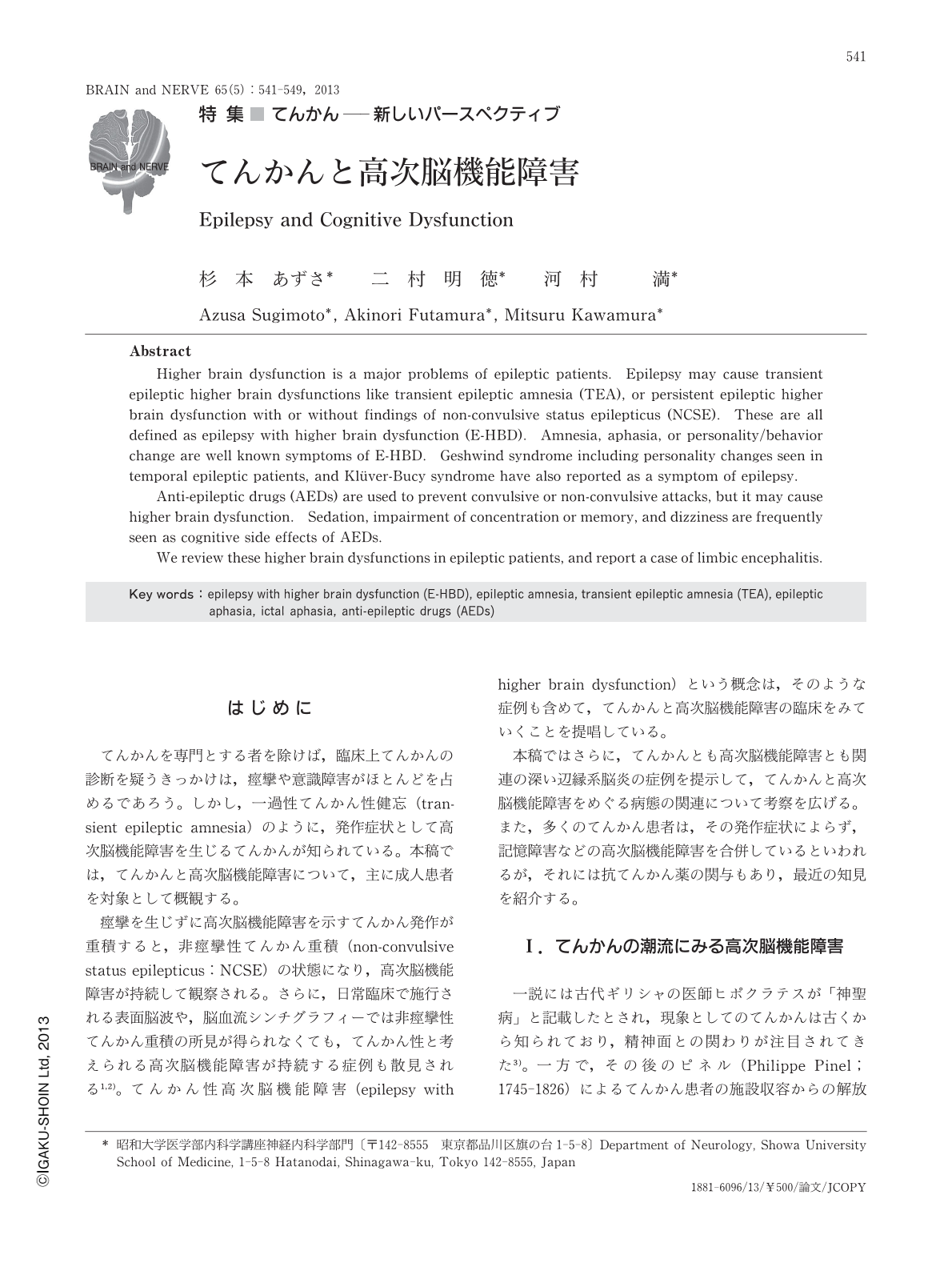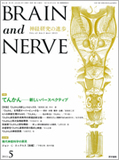Japanese
English
- 有料閲覧
- Abstract 文献概要
- 1ページ目 Look Inside
- 参考文献 Reference
はじめに
てんかんを専門とする者を除けば,臨床上てんかんの診断を疑うきっかけは,痙攣や意識障害がほとんどを占めるであろう。しかし,一過性てんかん性健忘(transient epileptic amnesia)のように,発作症状として高次脳機能障害を生じるてんかんが知られている。本稿では,てんかんと高次脳機能障害について,主に成人患者を対象として概観する。
痙攣を生じずに高次脳機能障害を示すてんかん発作が重積すると,非痙攣性てんかん重積(non-convulsive status epilepticus:NCSE)の状態になり,高次脳機能障害が持続して観察される。さらに,日常臨床で施行される表面脳波や,脳血流シンチグラフィーでは非痙攣性てんかん重積の所見が得られなくても,てんかん性と考えられる高次脳機能障害が持続する症例も散見される1,2)。てんかん性高次脳機能障害(epilepsy with higher brain dysfunction)という概念は,そのような症例も含めて,てんかんと高次脳機能障害の臨床をみていくことを提唱している。
本稿ではさらに,てんかんとも高次脳機能障害とも関連の深い辺縁系脳炎の症例を提示して,てんかんと高次脳機能障害をめぐる病態の関連について考察を広げる。また,多くのてんかん患者は,その発作症状によらず,記憶障害などの高次脳機能障害を合併しているといわれるが,それには抗てんかん薬の関与もあり,最近の知見を紹介する。
Abstract
Higher brain dysfunction is a major problems of epileptic patients. Epilepsy may cause transient epileptic higher brain dysfunctions like transient epileptic amnesia (TEA), or persistent epileptic higher brain dysfunction with or without findings of non-convulsive status epilepticus (NCSE). These are all defined as epilepsy with higher brain dysfunction (E-HBD). Amnesia, aphasia, or personality/behavior change are well known symptoms of E-HBD. Geshwind syndrome including personality changes seen in temporal epileptic patients, and Klüver-Bucy syndrome have also reported as a symptom of epilepsy.
Anti-epileptic drugs (AEDs) are used to prevent convulsive or non-convulsive attacks, but it may cause higher brain dysfunction. Sedation, impairment of concentration or memory, and dizziness are frequently seen as cognitive side effects of AEDs.
We review these higher brain dysfunctions in epileptic patients, and report a case of limbic encephalitis.

Copyright © 2013, Igaku-Shoin Ltd. All rights reserved.


